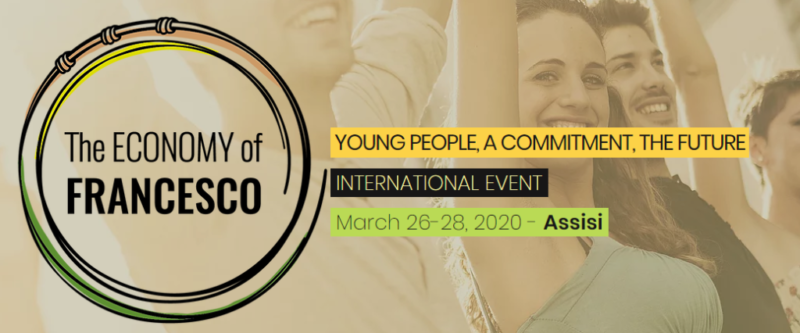In today’s global economic circumstances, both the environment and human dignity are at stake, with concerns for the well-being of current and future generations. The current growth models are incapable of guaranteeing respect for the environment, openness to life, family concerns, social equality, and workers’ dignity. This is reflected in the teaching of Pope Francis, who has vigorously criticized the pathological state of the global economy, referring to it as an “economy that kills”.
In view of this, the event ‘The economy of Francesco’, will serve as an encounter where young people are encouraged to be the protagonists of a transformation of the current economic models. The event seeks to foster a culture of communion based on fraternity and equality by intersecting theory and practice to build new ideas and collaborations. The ultimate aim is to restore a soul to the economy of tomorrow, setting a holistic vision essential to safeguard “our common home” while ensuring justice for the poor and find answers to the structural problems of the global economy.
This event, which will take place in Assisi between the 26th and 28th March 2020, will bring together five hundred researchers in economics, young entrepreneurs and change makers up to the age of 35, from all over the globe. It will include room for reflection and silence, for stories and meetings, for art and spirituality. Laboratories, artistic and plenary events will be conducted with a number of well-known economists, sustainable development experts and entrepreneurs, who are engaged worldwide for a different economy. The proposal is to make a pact that goes beyond differences of beliefs and nationalities. Human beings exist, live and act together, not in isolation, so we need one another to develop.
The Justice and Peace Commission is actively supporting this event and is supporting a number of participants, whilst preparing a ‘towards the Econonmy of Franesco’ event, and a follow-up conference in October in collaboration with the Maltese branches of the Focolare Movement and the Centesimus Annus Pro Pontifice Foundation.
More infromatation could be found at www.francescoeconomy.org



